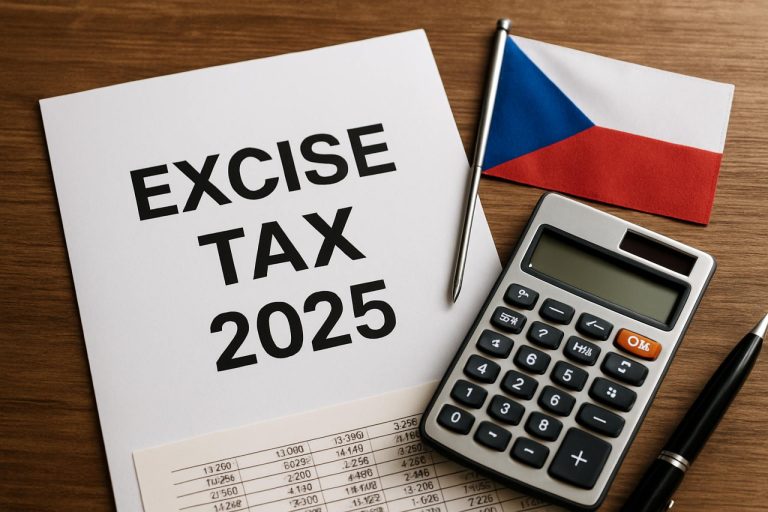
Table of Contents
- Overview of Germany’s Tax System: 2025 and Beyond
- Key Changes to Income Tax Laws in 2025
- Corporate Tax Updates: Impacts on Businesses
- VAT and Indirect Taxes: New Rules in Focus
- Compliance Requirements: What Residents and Expats Need to Know
- Digitalization and Tax Filing: Navigating New e-Government Tools
- Tax Reliefs, Deductions, and Allowances: What’s New?
- Enforcement, Audits, and Penalties: Staying on the Right Side of the Law
- Statistical Trends: Revenue, Compliance Rates, and Economic Impact
- Future Outlook: Predicted Tax Reforms Through 2030
- Sources & References
Overview of Germany’s Tax System: 2025 and Beyond
Germany’s tax system is among the most comprehensive and regulated in Europe, forming a crucial pillar of the country’s public finance and social welfare. As of 2025, the system is characterized by a mix of federal, state, and municipal taxes, with the main sources of revenue being income tax, corporate tax, value-added tax (VAT), and trade tax. The Federal Ministry of Finance oversees federal taxation policy and administration, while local authorities handle certain municipal levies.
The income tax (Einkommensteuer) for individuals remains progressive, with rates ranging from 14% up to 45% for annual incomes exceeding €277,826 as of 2025. Additionally, a solidarity surcharge (Solidaritätszuschlag) of 5.5% continues to apply to higher incomes, though the scope has been narrowed in recent years. The corporate income tax (Körperschaftsteuer) stands at 15%, with an effective burden rising to approximately 30% when including the solidarity surcharge and the municipal trade tax (Gewerbesteuer), which varies by municipality but typically ranges between 14% and 17% Federal Ministry of Finance.
- VAT (Umsatzsteuer): The standard VAT rate is 19%, with a reduced rate of 7% for certain goods and services. VAT remains a significant revenue source, accounting for over €265 billion in 2023, and is projected to increase moderately through 2025 and beyond Federal Statistical Office (Destatis).
- Compliance and Digitalization: Germany continues to modernize tax compliance through digital platforms such as ELSTER, streamlining electronic filing for individuals and businesses. Ongoing reforms aim to enhance efficiency and reduce administrative burdens ELSTER (Tax Administration Portal).
- International Taxation: Germany aligns its tax law with EU directives and OECD standards. The implementation of global minimum tax rules (Pillar Two) and anti-avoidance measures is expected to impact multinational enterprises from 2025 onward Federal Ministry of Finance.
Looking ahead, the outlook for Germany’s tax system involves continued adaptation to digital business models, sustainability incentives, and international tax reforms. The government is considering targeted tax relief measures to support economic growth and address demographic shifts, while maintaining a focus on fiscal discipline and social equity. Monitoring and enforcement are expected to intensify as authorities leverage advanced analytics and cross-border information exchange.
Key Changes to Income Tax Laws in 2025
Germany is implementing significant updates to its income tax laws in 2025, reflecting both inflationary pressures and evolving fiscal policy priorities. The primary legislative driver is the Annual Tax Act 2024 (Jahressteuergesetz 2024), which was introduced to Parliament in late 2023 and takes effect in 2025. This law enacts a range of adjustments designed to reduce the tax burden for individuals and families, foster economic resilience, and ensure continued compliance with European Union and international tax standards.
- Inflation Adjustment and Basic Allowance Increase: To counteract “cold progression” (bracket creep), the basic personal allowance (Grundfreibetrag) rises to €11,784 in 2025, up from €11,604 in 2024. The tax brackets have also been shifted upward, meaning more income is taxed at lower rates. The government projects this will result in noticeable net income gains for most employees (Bundesministerium der Finanzen).
- Child Allowance and Family Relief: The child tax allowance (Kinderfreibetrag) will increase to €6,384 per child, reflecting the government’s commitment to supporting families. The revised family benefit schedule further aligns with the “Kindergrundsicherung” (basic child security) reform, which is scheduled for phased implementation beginning in 2025 (Bundesministerium der Finanzen).
- Pension Contributions and Retirement: From 2025, pension contributions up to the statutory maximum will be fully deductible from taxable income. This completes the transition mandated by the Federal Constitutional Court, ensuring that retirement savings are treated equitably under tax law (Bundesverfassungsgericht).
- Compliance Requirements: Digitalization initiatives continue, with enhanced obligations for electronic filing and documentation. The Federal Central Tax Office is expanding its oversight of cross-border transactions, in line with EU directives on tax transparency and anti-avoidance (Bundeszentralamt für Steuern).
According to Ministry projections, these changes will reduce overall tax revenues from personal income tax by roughly €8 billion in 2025, but are expected to stimulate domestic consumption and support economic stability. Looking ahead, further adjustments to tax allowances and digital reporting are anticipated as Germany continues aligning with EU tax reforms and responds to ongoing economic challenges (Bundesministerium der Finanzen).
Corporate Tax Updates: Impacts on Businesses
Germany’s corporate tax environment in 2025 is shaped by ongoing legislative adjustments and policy debates reflecting the country’s commitment to maintaining competitiveness while ensuring fiscal sustainability. The standard corporate income tax (Körperschaftsteuer) rate remains at 15%, with an additional solidarity surcharge of 5.5% on the tax due. When factoring in the trade tax (Gewerbesteuer), which varies by municipality but averages around 14%–17%, the combined effective corporate tax burden continues to hover between 30% and 33%—one of the highest in the European Union.
In 2024, the German government enacted measures such as the “Growth Opportunities Act” (Wachstumschancengesetz), effective in 2025, aiming to stimulate investment and innovation. Key provisions include enhanced tax incentives for research and development (R&D), expanded loss carryback rules (now up to €10 million for 2024 and 2025), and temporary improvements to depreciation allowances for movable assets. These measures are designed to provide liquidity relief and promote competitiveness for businesses operating in Germany Federal Ministry of Finance.
Compliance remains a central focus, as Germany continues to strengthen tax transparency and anti-avoidance provisions. The country has fully implemented the EU Anti-Tax Avoidance Directive (ATAD), including stricter rules on hybrid mismatches and interest deduction limitations. The fiscal authorities have also intensified digitalization of tax administration, with the mandatory use of electronic tax filings, expanding audit capabilities and increasing scrutiny on cross-border transactions Federal Central Tax Office.
Germany’s tax authorities are actively participating in the ongoing OECD/G20 Inclusive Framework negotiations on global corporate minimum taxation (Pillar Two). The German implementing law entered into force on December 30, 2023, and applies to fiscal years starting in 2024, ensuring that in-scope multinational groups are subject to a minimum effective tax rate of 15%. This affects both German-headquartered and foreign multinationals with significant operations in Germany Federal Ministry of Finance.
Looking ahead, the outlook for corporate taxation in Germany is marked by a balancing act: policymakers face calls to reduce the overall tax burden to attract investment, but budgetary pressures and EU fiscal rules may limit the scope for significant rate cuts. Businesses should prepare for ongoing reforms in tax incentives, reporting requirements, and international alignment, especially as digitalization and global tax coordination continue to evolve.
VAT and Indirect Taxes: New Rules in Focus
Germany’s framework for Value Added Tax (VAT) and other indirect taxes continues to evolve in response to both European Union directives and domestic fiscal priorities. As of 2025, the standard VAT rate remains at 19%, with a reduced rate of 7% applied to certain goods and services, such as food, books, and public transport. These rates are set out in the Umsatzsteuergesetz (German VAT Act), which is aligned with EU VAT rules.
A key development in 2025 is the implementation of the EU’s VAT in the Digital Age (ViDA) initiative, targeting digitalization, fraud prevention, and cross-border trade simplification. Germany, as a major EU economy, is actively adapting its systems to comply with these measures. Notably, the introduction of mandatory digital invoicing for domestic B2B transactions is expected by 2025/2026, streamlining data exchange and improving tax compliance. The German Ministry of Finance has issued draft legislation to amend national law accordingly, in anticipation of the EU-wide obligation (Bundesministerium der Finanzen).
Additionally, the German tax authorities are increasing their scrutiny of cross-border e-commerce. Platforms facilitating sales to German consumers must ensure VAT is correctly collected and remitted, reflecting the extended VAT liability rules for online marketplaces introduced in recent years. This aligns with Germany’s efforts to combat VAT fraud and close the tax gap, which was estimated at €23 billion across the EU in 2021 (European Commission: Taxation and Customs Union).
- Germany’s VAT revenue in 2023 exceeded €280 billion, accounting for over 30% of total tax receipts (Statistisches Bundesamt (Destatis)).
- The compliance burden for businesses is expected to decrease with the shift to electronic invoicing and real-time reporting, but initial implementation costs may be significant, especially for SMEs.
- Other indirect taxes—such as energy, insurance, and vehicle taxes—are also under review, with policy adjustments likely as part of Germany’s climate and mobility strategies.
Looking ahead, German businesses should prioritize readiness for digital VAT compliance and monitor updates from the Bundesministerium der Finanzen. The shift to digital processes aims to increase transparency and reduce fraud, while ongoing EU harmonization efforts could bring further changes to indirect tax obligations in the next several years.
Compliance Requirements: What Residents and Expats Need to Know
Germany’s tax system is recognized for its complexity and comprehensive compliance requirements, which apply to both residents and expatriates. In 2025, several key aspects continue to define tax compliance in Germany, reflecting ongoing legislative adjustments and digitalization efforts.
Residency and Taxation Principles
Individuals are considered tax residents in Germany if they have a domicile or habitual abode in the country. Residents are subject to unlimited tax liability, meaning their worldwide income is taxed in Germany. Non-residents are taxed only on German-sourced income. This principle remains unchanged under the Federal Ministry of Justice’s Income Tax Act (§1 EStG).
Tax Filing and Deadlines
For the 2025 tax year, residents and expats must generally file their annual income tax return (“Einkommensteuererklärung”) by July 31 of the following year, unless submitted by a certified tax adviser, which extends the deadline to the end of February of the subsequent year. The Federal Central Tax Office continues to provide digital submission via the ELSTER portal, which is mandatory for most filers.
Mandatory Registration and Identification
Upon arrival in Germany, new residents and expats must register their address with local authorities within 14 days. This triggers the issuance of a tax identification number (“Steueridentifikationsnummer”), which is required for all tax filings and interactions with the Federal Central Tax Office.
Social Security and Double Taxation
Expatriates may be subject to mandatory social security contributions, depending on their employment status and applicable international agreements. Germany maintains a broad network of double taxation treaties to prevent the same income being taxed in multiple jurisdictions. Details are maintained by the Federal Ministry of Finance.
- Progressive income tax rates for 2025 range from 14% to 45% for individuals, with a solidarity surcharge of 5.5% applied to higher incomes.
- Annual tax audits and compliance checks remain robust, with digital reporting and cross-border data exchange intensifying scrutiny.
- Registration for VAT is required for self-employed and business activities, and digital invoicing requirements are expanding after 2025 in line with EU harmonization efforts.
Looking ahead, Germany is expected to further digitalize its tax administration and enhance compliance enforcement through data analytics and international cooperation. Both residents and expats should proactively monitor regulatory updates and ensure timely, accurate filings to avoid penalties.
Digitalization and Tax Filing: Navigating New e-Government Tools
The digitalization of tax administration in Germany has accelerated significantly in recent years, with 2025 marking further expansion of e-government tools aimed at simplifying tax compliance for individuals and businesses. Central to this transformation is the ELSTER platform (Elektronische Steuererklärung), the official online tax filing system provided by the German tax authorities. As of 2025, electronic tax returns via ELSTER are not only encouraged but, in many cases, mandated for businesses and self-employed individuals, supporting Germany’s broader strategy for digital public administration.
ELSTER allows taxpayers to submit income tax, VAT, corporate tax, and other declarations online. The system has become increasingly user-friendly, with new features such as guided forms, pre-filled data from payroll and financial institutions, and real-time validation of entries to reduce errors and audit risk. As of the 2025 assessment year, over 92% of all income tax returns are expected to be filed electronically, reflecting a steady increase from previous years (ELSTER).
Key legislative frameworks underpinning this digital shift include the ongoing implementation of the Online Access Act (OZG), which requires federal, state, and local authorities to provide administrative services digitally by the end of 2025. The Federal Ministry of Finance has rolled out additional digital tools, such as the “Mein ELSTER” portal, which consolidates tax notices, correspondence, and payment management in one secure online platform.
Compliance requirements have evolved alongside these digital tools. Since 2023, businesses are obliged to submit annual financial statements electronically in XBRL format. In 2025, further mandatory digital reporting obligations are anticipated, especially concerning cross-border transactions and VAT. These efforts align with the European Union’s push for digital tax reporting harmonization and real-time data exchange between member states (Federal Central Tax Office).
Looking ahead, the German government aims to leverage artificial intelligence and machine learning to automate risk analysis and speed up tax assessments. Taxpayers can expect more personalized digital assistance and expanded pre-filled data options by 2027, reducing administrative burdens and enhancing compliance rates. However, the rapid pace of digitalization also prompts ongoing investments in cybersecurity and data privacy, as outlined by the Federal Ministry of Finance and the Federal Office for Information Security.
Tax Reliefs, Deductions, and Allowances: What’s New?
Germany’s tax system offers a range of reliefs, deductions, and allowances to reduce the tax burden for individuals and businesses. In 2025, several important changes—driven largely by inflation adjustments, legislative reforms, and policy priorities—will impact both compliance and tax planning.
Key Tax Reliefs and Adjustments in 2025
- Basic Allowance (Grundfreibetrag): The basic tax-free allowance for individuals rises to €11,784 in 2025, up from €11,604 in 2024. This adjustment reflects the government’s annual inflation-indexing mechanism and aims to maintain the real value of take-home income Bundesministerium der Finanzen.
- Child Allowance (Kinderfreibetrag): The child allowance is set to increase to €6,612 per child, responding to cost-of-living increases and to support families more effectively Bundesministerium der Finanzen.
- Employee Lump-Sum Deduction (Arbeitnehmer-Pauschbetrag): The flat-rate deduction for income-related expenses remains at €1,230 for 2025, after being increased in prior years Bundesministerium der Justiz.
- Home Office Deduction (Homeoffice-Pauschale): The home office flat-rate of €6 per day (up to €1,260 per year) continues, reflecting permanent changes in work patterns post-pandemic Bundesministerium der Finanzen.
- Energy Price Relief and Special Deductions: Temporary enhanced reliefs for energy costs, introduced during the energy crisis, are being phased out. However, standard deductions for extraordinary expenses and insurance contributions remain available Bundesministerium der Finanzen.
Compliance and Outlook
Taxpayers are encouraged to leverage digital filing systems and updated pre-filled tax returns, which streamline reporting for common deductions and allowances ELSTER. Looking ahead, the government has signaled further inflation adjustments and potential new family support measures in upcoming budgets, with legislative proposals under review. Tax reliefs remain a dynamic policy tool as Germany balances fiscal stability with targeted support for households and the workforce.
Enforcement, Audits, and Penalties: Staying on the Right Side of the Law
Enforcement of tax compliance in Germany is robust, characterized by proactive audits and a structured penalty regime overseen by the Federal Central Tax Office (Bundeszentralamt für Steuern) and local tax authorities (Finanzämter). The German Fiscal Code (Abgabenordnung) provides the legal framework for tax enforcement, audits, and sanctions. In 2025, the government’s ongoing digitization initiatives and enhanced data exchange with EU and international partners further strengthen audit effectiveness and cross-border tax enforcement.
- Tax Audits: German tax authorities conduct both routine and risk-based audits. Audits may focus on corporate income tax, VAT, wage taxes, or transfer pricing. With the expansion of digital reporting requirements, such as mandatory electronic invoice transmission and real-time data sharing (phased implementation through 2025 and beyond), audit frequency and depth are expected to increase, especially for businesses with complex international structures (Federal Ministry of Finance).
- Penalties: Non-compliance can result in significant financial penalties, ranging from late filing fines to punitive surcharges for tax evasion. As of 2025, intentional tax evasion may lead to penalties up to 10% of the evaded tax, with possible criminal prosecution for severe cases, including imprisonment (Abgabenordnung §370). Administrative errors (e.g., late filings or mistakes without intent to evade tax) typically result in smaller fines or interest charges.
- Self-Disclosure: German law allows voluntary self-disclosure of previously undeclared income, potentially exempting taxpayers from penalties if made before the initiation of an audit. However, amnesty is not available if the authorities have already commenced investigations (Federal Ministry of Finance).
- Key Statistics: In 2023, tax authorities conducted over 180,000 audits and assessed additional tax claims exceeding €13 billion, with expectations of similar or higher figures in 2025 due to increased resources and digital tools (Federal Ministry of Finance).
Looking ahead, Germany is committed to further tightening tax enforcement by leveraging AI-powered risk analysis and international data sharing under the OECD’s Common Reporting Standard. This means taxpayers—especially multinational enterprises and high-net-worth individuals—should expect more frequent and detailed scrutiny in the coming years.
Statistical Trends: Revenue, Compliance Rates, and Economic Impact
Germany’s tax landscape in 2025 reflects both robust revenue collection and evolving compliance dynamics. According to preliminary data, Germany’s total tax revenue continues its upward trend, with the Federal Ministry of Finance reporting gross tax receipts (including federal, state, and municipal taxes) reaching approximately €950 billion in 2024, with forecasts projecting growth to over €980 billion in 2025. This trajectory is supported by steady economic recovery, modest wage growth, and legislative changes targeting corporate and personal income tax bases.
Corporate tax remains a cornerstone for public finance. The German corporate income tax rate remains stable at 15%, supplemented by a solidarity surcharge (5.5%) and municipal trade tax averaging between 14% and 17%. Personal income tax continues to be progressive, peaking at 45% for top earners. Value-added tax (VAT), the largest single revenue source, is maintained at standard (19%) and reduced (7%) rates. These structures have contributed to tax-to-GDP ratios consistently above 38%, aligning Germany with leading OECD economies (Federal Statistical Office).
Compliance rates are high, with electronic filing systems and digital audits broadening tax authority oversight. For 2024, over 90% of personal income tax declarations were submitted electronically, while the roll-out of the “Mein ELSTER” platform is set to further streamline the process in 2025 (ELSTER). Corporate compliance has also improved, assisted by mandatory electronic invoicing in business-to-government transactions starting January 2025, as stipulated in the 2024 Growth Opportunities Act. This measure is expected to reduce VAT fraud and enhance audit precision (Federal Ministry of Finance).
Recent fiscal policy focuses on closing tax gaps and broadening the tax base. Enhanced data-sharing among EU tax authorities and increased digital scrutiny of cross-border transactions aim to combat evasion and profit shifting. Preliminary estimates suggest the tax gap (the difference between owed and collected taxes) has narrowed to less than 2% of total revenue, reflecting both enforcement and economic recovery.
Looking ahead, demographic change and global economic shifts may pressure revenue streams. However, ongoing digitalization, targeted compliance measures, and periodic rate adjustments are expected to maintain high compliance and stable revenue, underpinning Germany’s fiscal resilience in the coming years.
Future Outlook: Predicted Tax Reforms Through 2030
Germany’s tax landscape is poised for several significant changes through 2030, spurred by demographic shifts, fiscal pressures, and the need to support economic transformation. As of 2025, the German government is actively engaged in debates and legislative processes to modernize and recalibrate the tax system, with several reforms already proposed or under discussion that are likely to shape the next five years.
One major driver is the country’s commitment to climate policy. With the implementation of the national emissions trading system and adjustments to carbon pricing for heating and transport sectors, there is a clear pathway for increased environmental taxation. The Federal Ministry of Finance has outlined steps for aligning the tax system with Germany’s climate goals, suggesting that further rises in energy taxes or expansions of emissions trading are probable through 2030.
Corporate taxation is another area expected to evolve. Germany has signaled its support for the global minimum tax under the OECD/G20 Inclusive Framework on BEPS, which is set to take effect in 2024. This will require multinational enterprises to pay a minimum effective tax rate of 15%, reshaping Germany’s international tax competitiveness and compliance landscape. The Federal Ministry of Finance confirms ongoing legislative work to ensure full compliance and implementation.
On the personal income tax side, inflation adjustment and bracket creep are persistent issues. Policymakers continue to index tax brackets to inflation to avoid disproportionate tax burdens on wage growth. The “Tarif auf Rädern” (moving tax scale) will likely remain in place, though debates persist about the adequacy of these adjustments and the future of solidarity surcharges (Soli). According to the Federal Ministry of Finance, further reforms to personal taxation, including relief for middle incomes and families, are under discussion.
Digitalization of tax administration is another major focus. Germany’s tax authorities are investing in IT infrastructure and e-filing systems, aiming for near-universal digital tax compliance by 2030. The Federal Central Tax Office is leading efforts to reduce administrative burdens via digital platforms and pre-filled returns.
In summary, between 2025 and 2030, Germany’s tax system will likely see reforms targeting environmental sustainability, international tax alignment, relief for households, and digital efficiency. These changes are designed to balance fiscal needs with economic competitiveness and social fairness.



